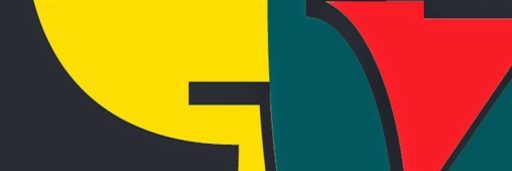Master study in Germany
Hello Everyone!
Hope everyone is doing great from his/her position. I think the life style, and tuition fee free situations of Germany attract most of the students, that’s why today I have come up with some information regarding application for Master programs in Germany and also a little bit about the life style here.
Step 1: IELTS
In order to get German visa, you better have IELTS score at least 6 and also better 6 in each band. For IELTS, I’d suggest for the junior students who are still doing bachelor to start its preparation while you are in semester break so that immediate after completion of you bachelor you can appear for the IELTS exam. As preparation, my advice is only to solve the Cambridge series and if possible take 5-10 mock tests in mentors for what it will require only ~750-1500 BDT. These mock tests will make you able to expose yourself to the bit more difficult exams than the real IELTS exam, get your writing skills checked by experts which is bit difficult by own, and also improve speaking fluency, grammar, lexical resources by appearing for speaking tests as much as you want, because in mentors if you once apply for mock tests, you can have this opportunity of infinitive times for speaking practice but depending on the schedule obviously.
Step 2: Motivation letter
From the very beginning, try to write anything related to higher study that comes to your mind and reflect your motivation for higher study into your writing by which it is possible to persuade the authority where you’ll apply. According to my opinion, a motivation letter (ML) is always better to be written in one page and should have the following contents:
✓ A very good introduction of yourself with a short description of your future goal
✓ Background and previous experiences
✓ Reasons for interest to the program
✓ Reasons for interest to the University
✓ Future perspective
✓ Conclusion with impressionable words.
Please never try to copy it from any other sources, because they always check these letters with the help of strong plagiarism and if somehow they find your letter gets matched with another then your application process will be terminated and you will be screwed up. When you will be done with your full writing, please do not forget to get it checked by any of your known English experts.
Step 3: Application
Okay, now you are almost ready for application with these two weapons. You can look for universities and programs of your interest from the following websites and also by filtering your search option.
• https://www.daad.de/deutschland/studienangebote/international-programmes/en/
• https://www.study-in.de/en/plan-your-studies/find-programme-and-university/
Some general information regarding application to most of the German universities:
➢ Timeline for application:
For life science subjects, most of the German universities open their application window in winter semester (WS) and few in summer semester (SS)
WS: Feb 1- Apr 31/ Feb 1- May 31/ June 1- July 15
SS: Nov 15- Jan 15/ Dec 1- Jan 15
➢ Bachelor cGPA: In most of the universities ≥ 3.0; exceptional in some universities.
N.B. In German grading scale 1= excellent and 4 = sufficient to pass, so if your cGPA is 4.00 out of 4.00 then it will be considered as 1.00 and The following formula is normally used to convert the bachelor cGPA to German grade point.
[{N (𝑚𝑎𝑥)−N (𝑒𝑎𝑟𝑛𝑒𝑑)}/{N (𝑚𝑎𝑥)−N (𝑚𝑖𝑛)}] X 3 +1 = German converted grade point
Here,
N (earned) = Your obtained grade in bachelor.
N (max) = Maximum possible grade your grading system (In Most of the universities its 4.0)
N (min) = Minimum possible passing grade in your grading system (In most cases, it is 2.0)
➢ IELTS score: ≥ 6.5; better ≥ 6 in each band.
➢ German language: If the chosen program is English instructed, no need for it.
➢ ML: In Germany, some of the Universities do not require it, but most of the universities evaluate it in 20 points.
➢ Recommendation letters: Not necessary for most, but very few ask for two recommendation letters from two teachers of your bachelor university.
➢ CV: Most of the universities accept europass CV format whereas, some specific universities require specific templates for instance, TUM. Followings are the two CV template links:
• http://europass.cedefop.europa.eu/documents/curriculum-vitae/templates-instructions
• https://www.tum.de/fileadmin/w00bfo/www/Studium/Dokumente/Immatrikulationsamt/Bewerbung/Resume_Form.pdf
➢ Job experience: Not necessary for admission.
➢ Documents: The photocopies of your all academic documents (Bachelor, HSC, SSC certificates and transcripts) have to be sent with notary stamp and signature from lawyer.
➢ Photographs: L: 45mm and W: 35mm (For some universities) with the full name written in back.
➢ How to send documents: I’d like to suggest to use the ACS express courier rather than DHL because they take half price less than that of DHL and also the same duration as DHL to send documents.
Application to Uni-assist universities: If you want to apply to a university for what the application documents are handled by uni assist, you have to pay 75 euro for your first application and 15 euro for each application after 1st application. This process has to be repeated in each semester. The required documents must be sent to the following address: uni-assist e.V.; 11507 Berlin; GERMANY. You can also find relevant information from the following website.
http://www.uni-assist.de/applying.html

Step 4: After getting admission offer letter
➢ Dorm
Apply for a dorm through studentwerk of that city where you will get admission.
➢ Block account opening:
Following website will lead you to the resolution of your all queries regarding opening a block account in deutsche bank.
• https://www.deutsche-bank.de/pfb/data/docs/pk-kredit_finanzierung-db_international_opening_a_bank_account_for_foreign_students.pdf
• https://dhaka.diplo.de/blob/2076254/ff3de76dcb37fea3389c511aeb8eeee0/sperrkonto-data.pdf
after being notified with this opening confirmation, you have to open a student file in any of the Bangladeshi banks which I’d suggest to any government bank by which you can transfer the money at the same currency exchange rate as in Bangladesh bank which you will find bit more in private (Pvt.) banks and also it’ll only take 1000 BDT-2500 BDT to open the student file in government banks whereas, Pvt. Banks take 5000 BDT.
➢ Travel insurance:
From any of well-known travel insurance companies, you have to make travel insurance at least for 14 days as written in German visa requirements.
➢ Visa interview:
Please read the necessary information regarding visa interview and the required documents from these following links:
• https://dhaka.diplo.de/blob/1976510/127731e9b3c2034a250ed09f8f574bb3/checkliste-studienvisa-data.pdf
• https://dhaka.diplo.de/bd-en/service/visa-einreise/-/1976508
Step 5: After coming in Germany
➢ City registration:
You have to register in the city by your residence address which will later bring you your tax number required for doing job there.
➢ Bank account unblocking:
In order to withdraw money from your account, you have to unblock your bank account by going to any of the nearest branch of deutsche bank and you will be able to withdraw only 720 euro which is here considered as your one month living expense.
➢ Health insurance:
You have to apply for health insurance for what I’d suggest to TK or AOK for what they will deduct 90.00-91.00 EUR per month from your bank account. Without this, you will neither be able to get admission in university nor to do any job.
➢ Living expense:
✓ Accommodation: 150-350 EUR (Variable from cities to cities)
✓ Food: 70-90 EUR
✓ Health insurance: 90-91 EUR
✓ Mobile phone network: 10 EUR
✓ Semester fee: 190-320 EUR (University administrative fee + Transport cost in the city or the whole state where the university is located; in 6 months intervals)
✓ Others: Depend on your living style.
➢ Jobs:
✓ Part-time jobs: If you don’t have German language skills, you have to embrace the situation of doing odd part-time jobs which will take maximum 6-8 months to get depending on your network and city. By these jobs, you can earn 8.85-10 EUR/hr.
✓ RA jobs: It is bit difficult to get unless you have lab skills and also the earning is not so much to fulfil your living expenses.
➢ German learning:
Most of German universities offer free German language learning system with exception in some few universities which also depends on the city.
References
The following websites can be browsed for further relevant information.
https://www.germanprobashe.com/
https://www.facebook.com/groups/BSAAG/.
Eventually, the only thing I can do for you is to wish you a very good fortune in your every step! ☺


One of the best informative post. I really appreciate it. Most probably I will apply for the next year’s winter semester & I believe, this post will help me a lot.
আমি জার্মান ভাষা শিখতেছি। শুনেছি বি২ লেভেল পরজন্ত করা থাকলে না কি যব পাওয়া জায়। আমি ইলেক্ট্রিক্যাল অ্যান্ড ইলেক্ট্রনিকস ইঞ্জিনিয়ারিং এর উপর বি এস সি করছি। এই বসর শেষ হবে। আমি জার্মানি তে এম এস সি করতে চাই। আমার প্রশ্ন হলো জার্মান ভাষা জানা থাকলেও কি IELTS লাগে? যদি লাগে তা হলে পয়েন্ট কত?
Is it possible to apply in Germany if i have less than cgpa from 3??
Thank you so much for this post. It’s amazing how detailed you were in listing every requirements.
good job…!!